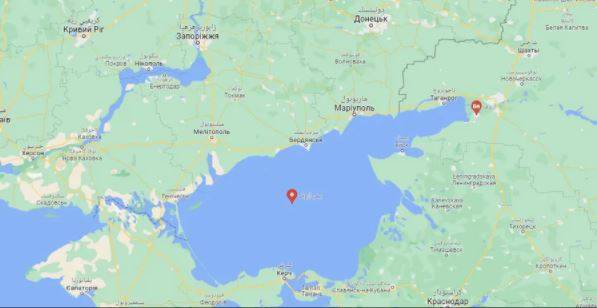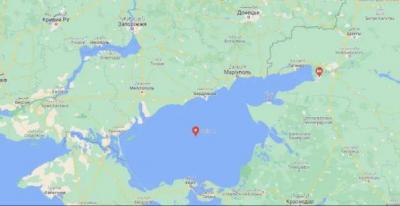The strategic port of Mariupol in eastern Ukraine has come under siege and heavy attacks from Russian forces as they seek to establish control over the Ukrainian territories surrounding the Sea of Azov. This highlights the significance of the region and its sea and its impact on the unfolding events. On Saturday, Mariupol's mayor, Vadim Boichenko, stated that they are currently "looking for solutions to humanitarian problems and exploring all possible means to lift the siege on Mariupol," emphasizing that "the priority is to achieve a ceasefire to restore infrastructure and create a humanitarian corridor to bring food and medicine to the city."
This move underscores the importance of the Sea of Azov, whose geographical position clarifies Russia's determination to control the surrounding lands. The sea branches off from the Black Sea in its northern part and connects to it through the Kerch Strait. The Sea of Azov borders the Ukrainian shores to the north, Russia to the east, and the Crimean Peninsula, which Moscow has controlled since 2014, to the west.
Thus, Mariupol obstructs the supply of arms being sent from Russia to its forces and their loyalists in Ukraine, particularly those coming from Crimea to the west and from the pro-Russian forces in the Donetsk region to the east. By controlling Mariupol and the surrounding area, Russian forces would dominate the Sea of Azov, linked to the Black Sea through the Kerch Strait, which Moscow already dominates as it lies within the Crimean Peninsula, effectively turning the Sea of Azov into an internal sea.
If Russian control over the shores of the Sea of Azov were to be completed, Moscow would be able to supply its troops in Ukraine with arms and potentially station its warships or nuclear submarines there, tipping the balance of power further in its favor. Additionally, this sea holds economic significance due to the presence of ships laden with wheat in its waters, which could cast a shadow over global food supplies, as Russia and Ukraine are among the world's largest wheat exporters.
According to a message published by Russian maritime authorities last Monday, more than 40 ships were waiting to enter the Sea of Azov, and about 170 ships were stuck in various Russian ports in the sea, some of which were carrying grain shipments, affecting global wheat prices. It is noteworthy that Russia announced on Thursday the suspension of navigation in the Sea of Azov, as Russian forces initiated a military operation. The Interfax news agency reported that the Russian maritime agency "Rosmorport" stated that "navigation in the waters of the Sea of Azov has been halted since 4 AM (01:00 GMT) until further notice."




